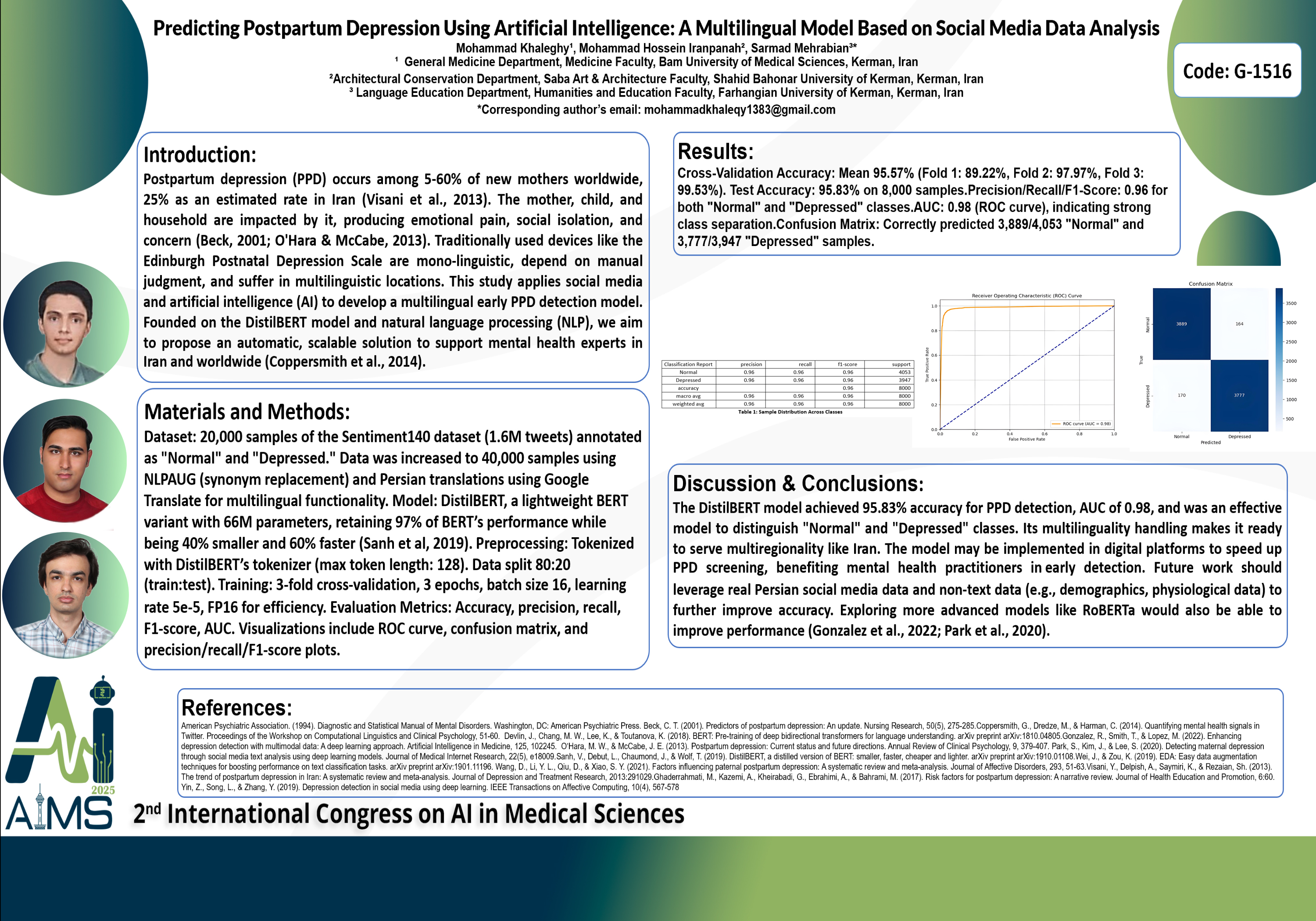Predicting Postpartum Depression Using Artificial Intelligence: A Multilingual Model Based on Social Media Data Analysis
Code: G-1516
Authors: Mohammad Khaleghy *, Mohammad Hossein Iranpanah, Sarmad Mehrabian ℗
Schedule: Not Scheduled!
Tag: Clinical Decision Support System
Download: Download Poster
Abstract:
Abstract
Background and Objectives: Postpartum depression (PPD) is one of the problems that mothers face after pregnancy and can affect the mother, the child, and even those around her; therefore, predicting it is of great importance. PPD is a depressive episode that may begin during pregnancy or even within the first four weeks after childbirth. It may even be that months after childbirth, mothers suffer from it. So far, traditional tools such as the Edinburgh Postnatal Depression Scale have been used, which have issues such as being monolingual, requiring manual evaluation, and limitations in multilingual regions. The aim of this research is to predict PPD using social media data and artificial intelligence and to present a multilingual model. Methods: In this research, the DistilBERT model was used, which is a lightweight version executable on weaker systems. This model has 66 million parameters and is used for analyzing emotional texts. Training and testing data were collected from the Sentiment140 dataset with 20,000 samples and were enriched using simulation and translation techniques into Persian. The model was trained using 3-fold cross-validation. This study is a quantitative and statistical analysis using machine learning in the medical domain. Results: The trained model achieved an internal validation accuracy of 0.955 and a test accuracy of 0.958, which was tested on 8,000 samples. The final output showed that for both groups (healthy and depressed mothers), the precision and recall values were both equal to 0.95. These results are comparable to standard tools. Conclusion: The proposed model can be used for predicting PPD with multilingual capability. Additionally, this model has the ability to be presented on digital platforms and can help in the rapid diagnosis of PPD and subsequent actions.
Keywords
Postpartum Depression, Artificial Intelligence, Medical
